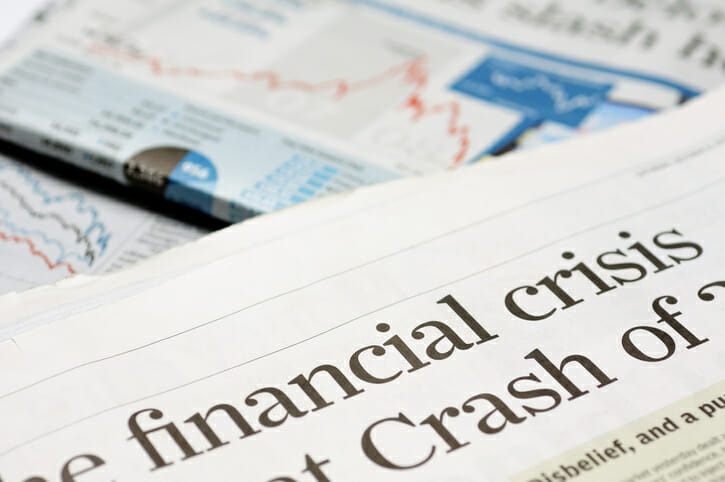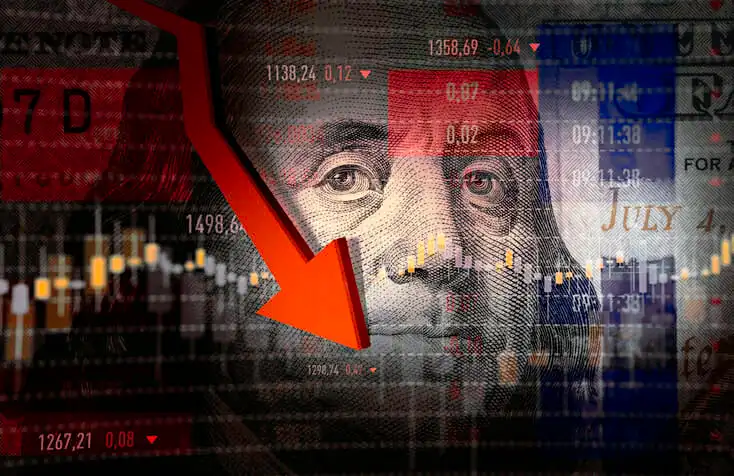When an economic storm rolls in, you might wonder if the economy has hit a recession or depression. Although both indicate difficult economic downturns, the causes and effects of each vary. Let’s take a closer look at the key differences between a recession and depression. If you need help navigating through economic downturns, a financial advisor can help you create a financial plan that aligns with your goals.
Recession vs. Depression: Definitions
While both terms are often linked with economic downturn, they are in fact different. Let’s break down how they’re defined:
Recession. A recession happens when the economy’s inflation-adjusted GDP has declined for two or more consecutive quarters. Although this is the generally accepted definition, any serious downturn in the economy of more than a few months counts as a recession.
In general, a recession will last for six to 18 months. But unfortunately, a recession can also stretch on for much longer.
Depression. A recession can turn into a depression if it lasts longer than normal or is unexpectedly severe. Although there isn’t a technical definition for a depression, it’s essentially a sustained recession that is very difficult for the economy to recover from.
You’ve likely heard of the Great Depression and the Great Recession. While both impacted the economy in negative ways, the Great Depression lasted for 10 years. That’s seven times longer than the 18 months of the Great Recession. A depression is usually considered more severe.
Recession vs. Depression: Causes

A recession is usually caused by one or more of these nine factors:
- High interest rates. When it gets more expensive to borrow money, that limits how much people are able to spend or invest.
- Loss of consumer confidence. When consumers lose confidence in the economy, they stop buying goods and services which slows down growth.
- Loss of investor confidence. A lack of confidence can lead a critical mass of investors to sell out of the stock market, which drags the economy down.
- Falling house prices. When home prices fall, homeowners cannot tap into second mortgages to stay afloat.
- Slowing manufacturing. A prolonged decline in manufacturing orders can also indicate a loss in consumer confidence.
- Poor business practices. When banks make bad investment decisions on a mass scale, the fallout can lead to a recession.
- Post-war times. After the economy exits a war, a slowdown in production is expected.
- Bubbles bursting. When a bubble bursts for a particular asset due to inflated values, that can lead to a recession. The dot-com bubble burst in 2002 is an example of a bubble burst.
- Deflation. This happens when a broad measure of consumer prices falls significantly over time, which can also indicate a decline in demand.
The factors that can trigger a recession may also lead to a depression. The effects, as we stated earlier, can take longer to recover from. Here are two additional causes for an economic depression:
- Stock market crash. This happens when the value of stock drops suddenly after investors sell shares quickly.
- Increase in oil prices. High oil prices can further erode the purchasing power of consumers, contributing to a further decline in demand.
Recession vs. Depression: Effects
You’ll want to consider how a recession and a depression could impact your personal finances. Here’s what to expect:
Recession. During a recession, businesses look to cut costs. So, many will face unemployment. Additionally, credit availability shrinks.
As an example, the Great Recession kicked off with the mortgage crisis of 2006. During this boom-to-bust slump, large amounts of mortgage-backed securities and derivatives dropped in value. This ended up becoming the most severe economic recession in the U.S. since the 1930s.
Depression. In a depression, the consequences are much more severe. You’ll find unemployment, credit limitations and shrinking budgets.
As an example, the Great Depression is the longest economic recession in modern history, lasting from 1929 to 1941. This prolonged economic downturn caused mass unemployment and homelessness.
Bottom Line

Every depression starts with a recession. But not all recessions turn into depressions. Regardless of the economic times, it’s important to save and invest your money to secure your financial future.
Tips to Prepare for an Economic Downturn
- The economy flows naturally through ups and downs. A financial advisor can help you prepare. SmartAsset’s free tool matches you with up to three financial advisors who serve your area, and you can interview your advisor matches at no cost to decide which one is right for you. If you’re ready to find an advisor who can help you achieve your financial goals, get started now.
- SmartAsset’s budget calculator could help you take care of your budget by adjusting your finances.
Photo credit: ©iStock.com/sefa ozel, ©iStock.com/elenaleonova, ©iStock.com/bedo
